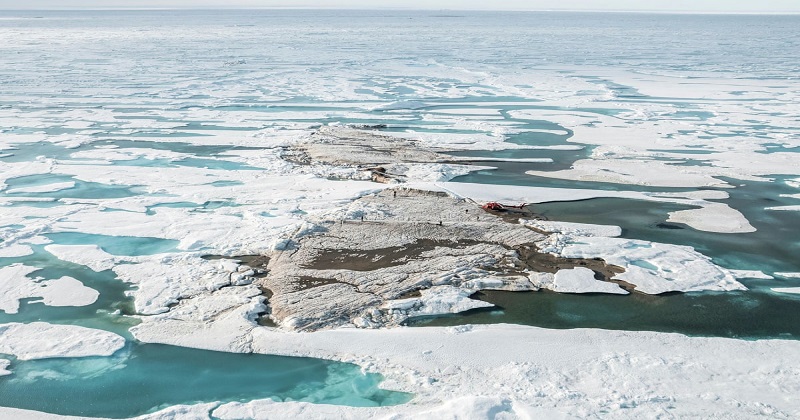
Scientists have discovered a new island off the coast of Greenland that they claim is the world’s northernmost point of land, uncovered by moving pack ice. Polar explorer and head of the Arctic station research facility in Greenland, Morten Rasch, said, ‘It was not our intention to discover a new island. We just went there to collect samples.’
The scientists initially believed they had arrived at Oodaaq, a Danish survey team’s discovery of the island in 1978. They only realised they had visited another island 780 metres to the northwest when they checked the exact position afterwards.
‘Everybody was happy that we found what we thought was Oodaaq island. It’s a bit like explorers in the past, who thought they’d landed in a certain place but actually found a totally different place,’ said Swiss entrepreneur Christiane Leister, creator of the Leister Foundation that financed the expedition.
The small island, which is about 30 metres across and has a top of about 3 metres, is made up of seabed mud and moraine, which is the soil and rock left behind by moving glaciers. The crew suggested the name ‘Qeqertaq Avannarleq,’ which translates to ‘the northernmost island’ in Greenlandic.
In recent decades, several US teams have investigated the area for the world’s northernmost island. Dennis Schmitt, an Arctic veteran, discovered a similar island nearby in 2007.
Although the new island was exposed by moving pack ice, the scientists said that its existence is not a direct result of global warming, which has caused Greenland’s ice sheet to shrink.
Also Read: WHO Chief Scientist praises India as it vaccinates 50% of adults with at least 1 dose
Rene Forsberg, professor and head of geodynamics at Denmark’s National Space Institute, said the area north of Greenland has some of the thickest polar sea ice, though it is now 2-3 metres thick in summer, down from 4 metres when he first visited in 1978 as part of the expedition that discovered Oodaaq.
Any chance of extending territorial claims in the Arctic is contingent on whether it is an island or a bank that could vanish. At high tide, an island must remain above sea level.
‘It meets the criteria of an island. This is currently the world’s northernmost land,’ Forsberg said. Although he did warn: ‘These small islands come and go.’

Post Your Comments